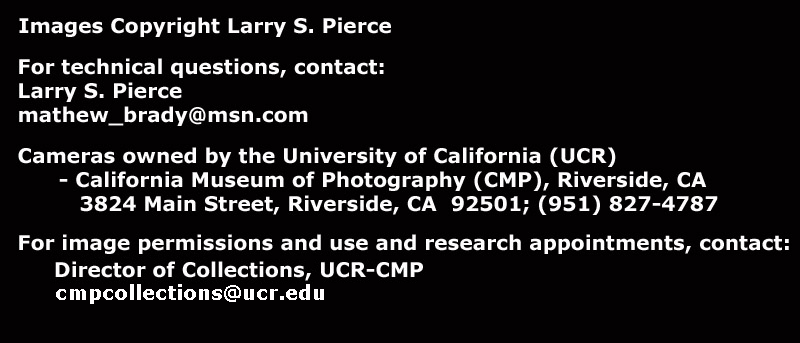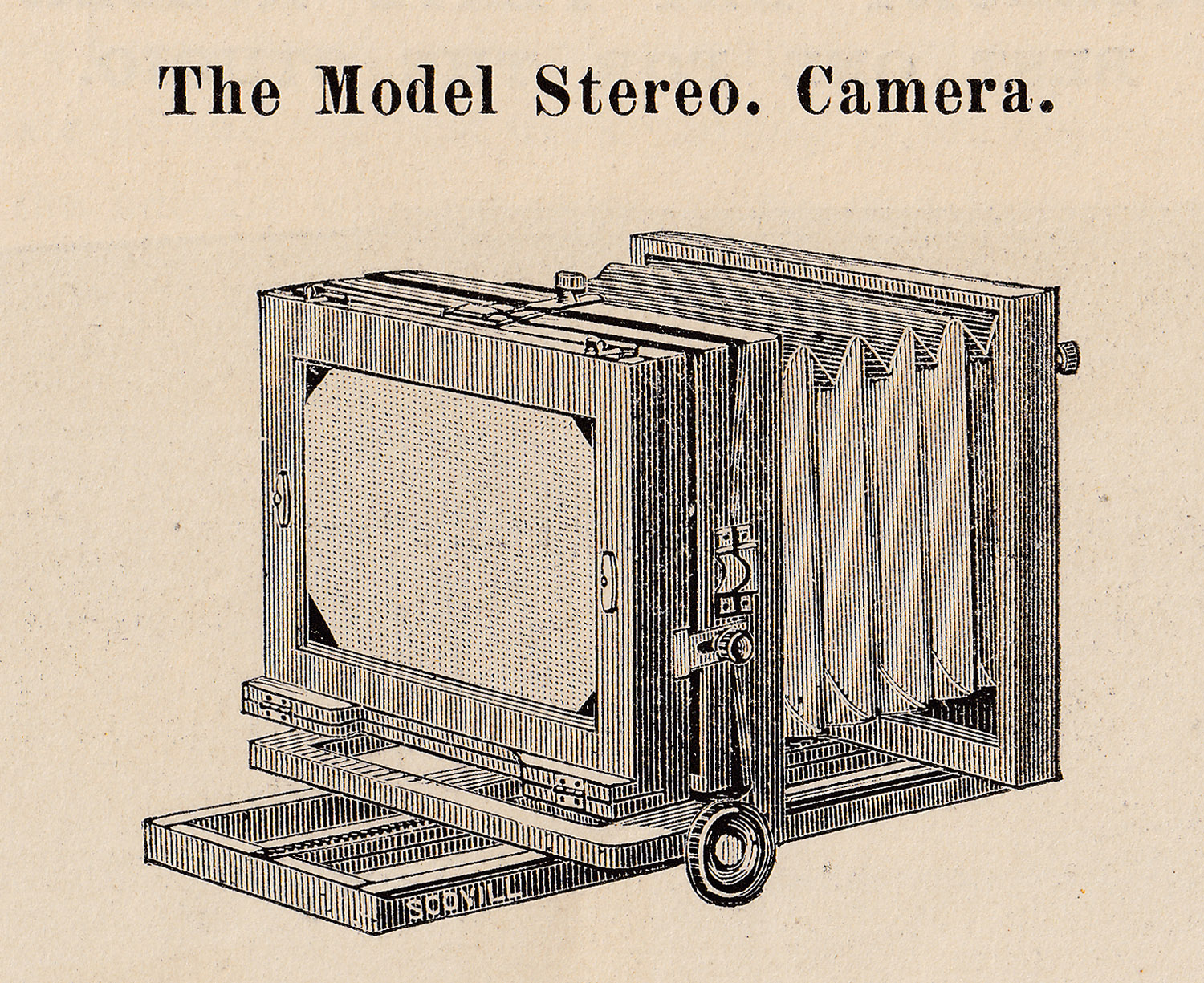Scovill Mfg. Co.
American Optical Company
Model Stereo View Camera
4¼ x 6½" Model Stereo View Camera, as in the engraving above - rear focusing,
straight bellows like
The 76 Camera,
but push-pull focus and center swing and different hardware than
The 76.
It bears an American Optical Co. stamp, and has typical American Optical
characteristics: smooth and shiny French polish finish on the wood, draw
file finish on the hardware, and screw slots laboriously aligned with
the long side of hardware.
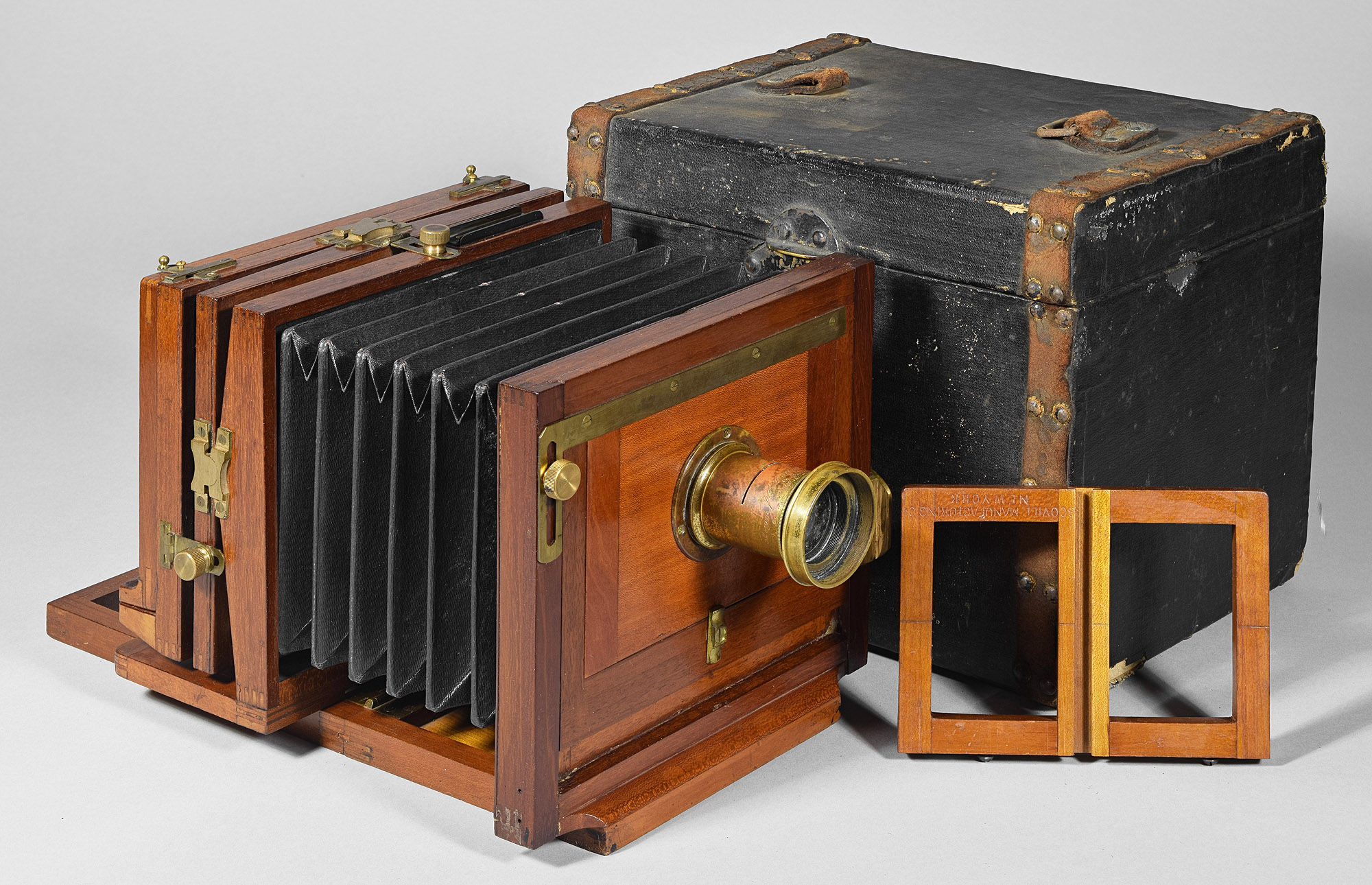
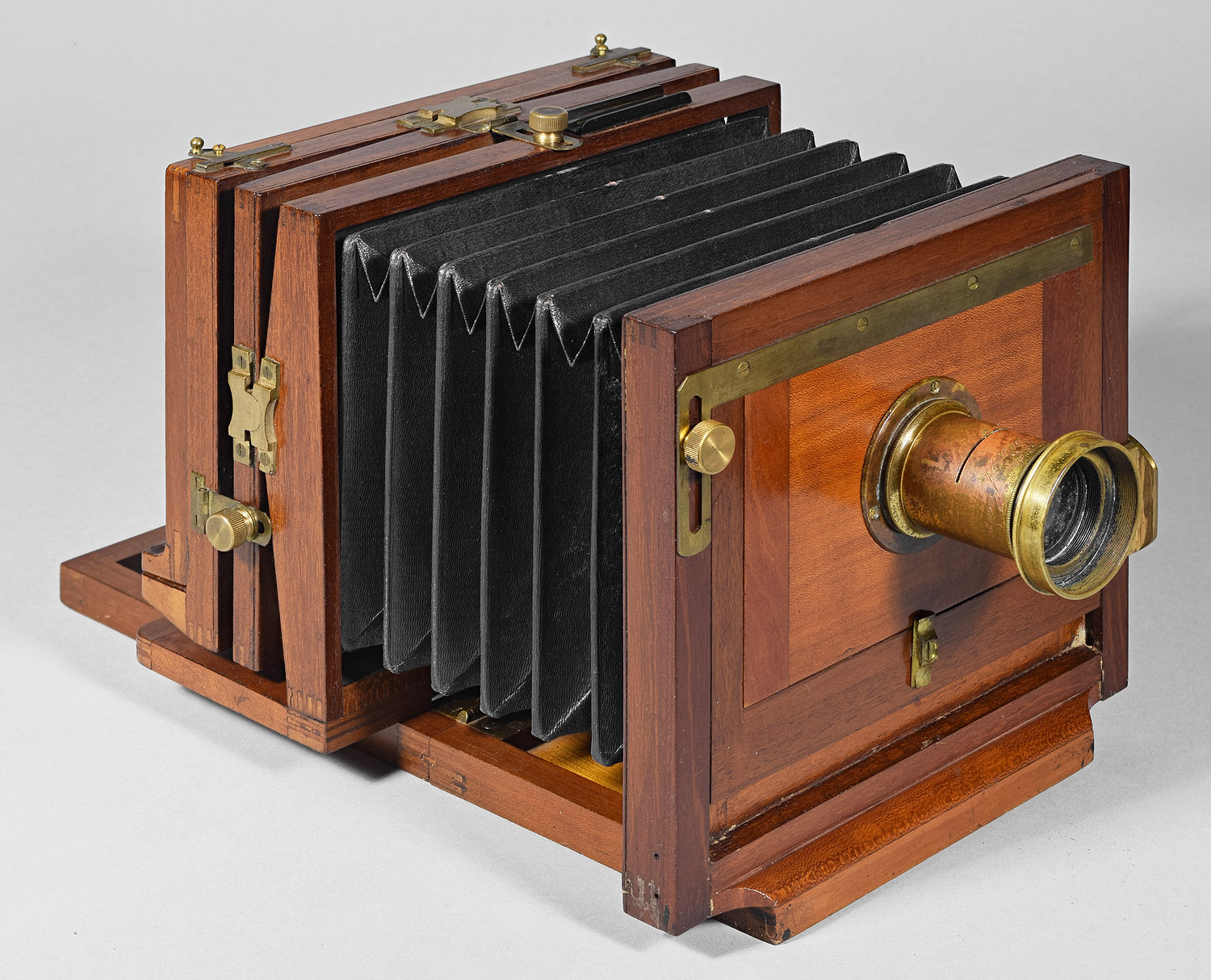
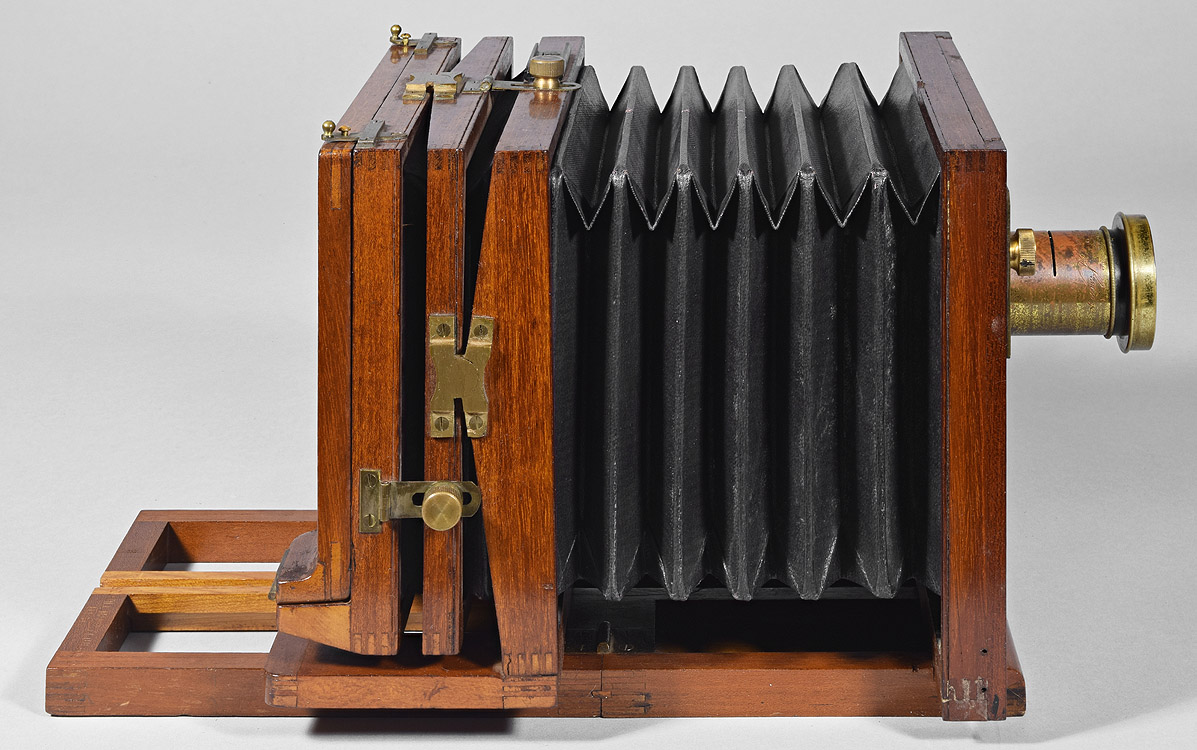
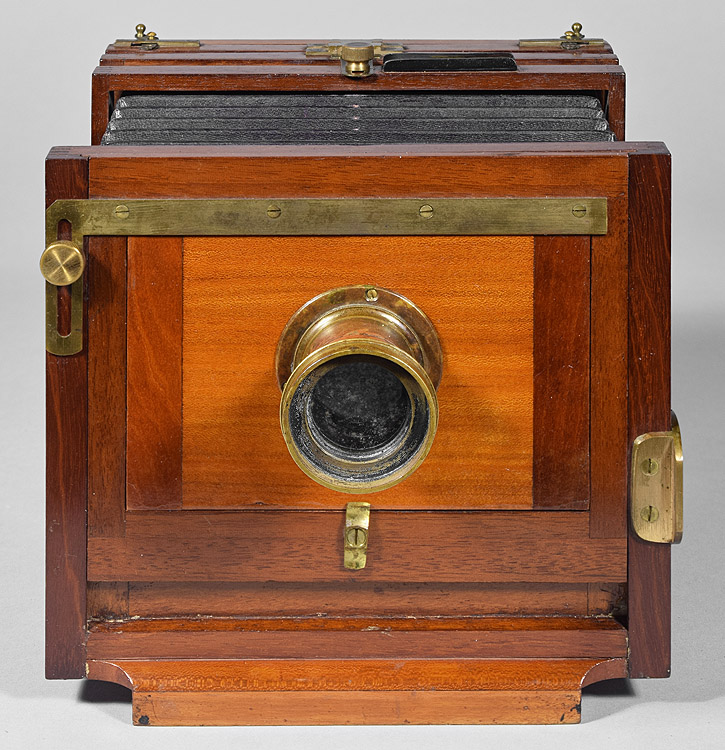
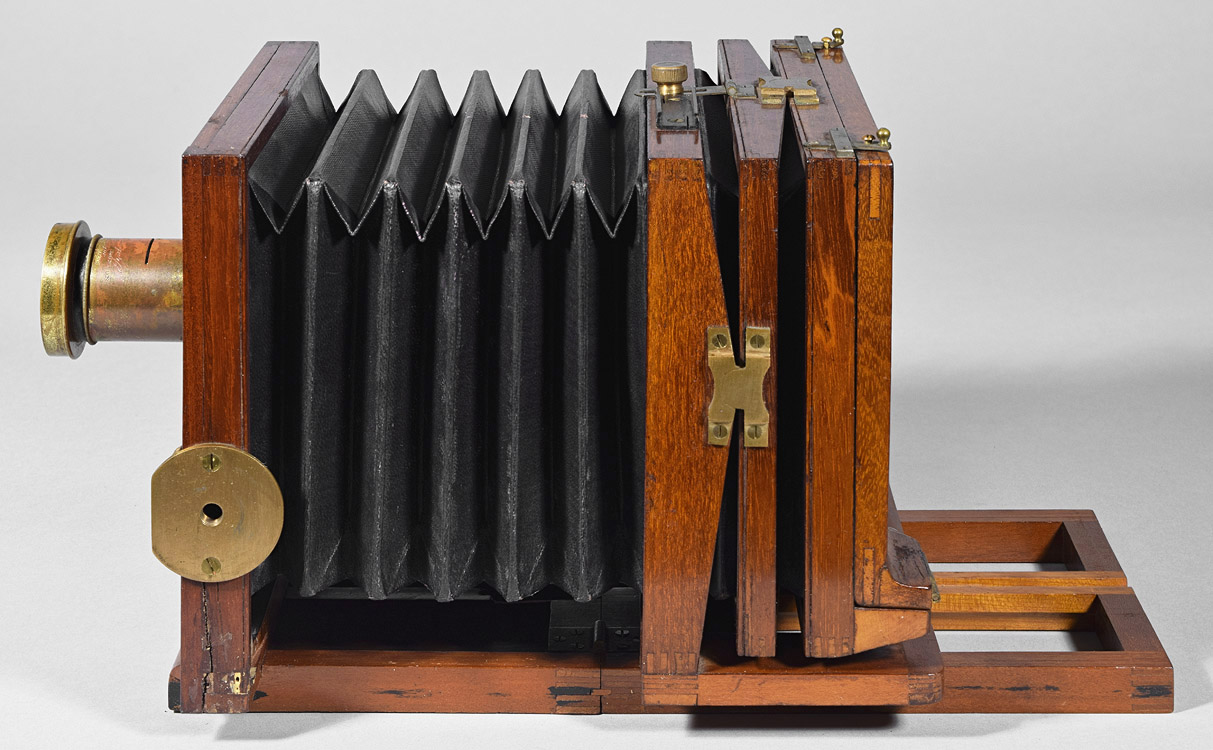
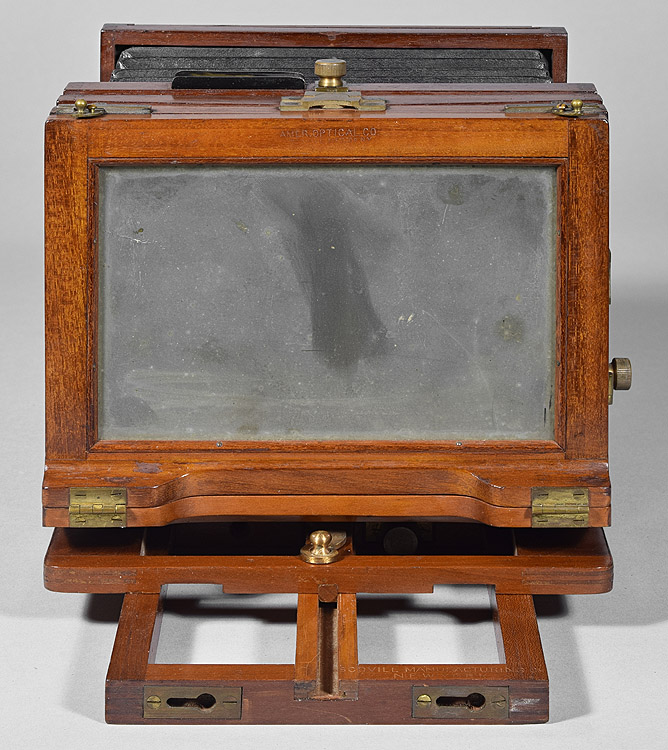
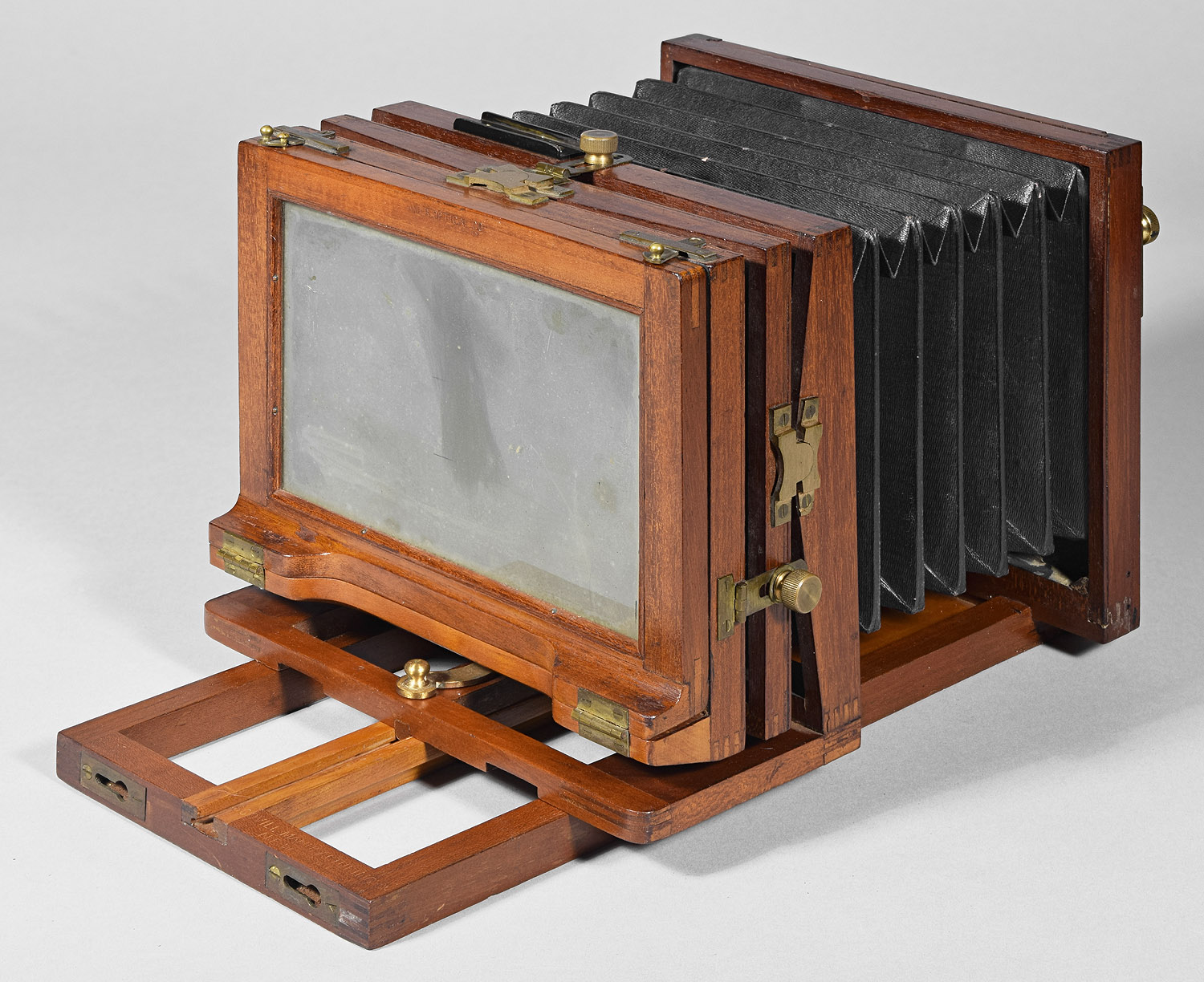
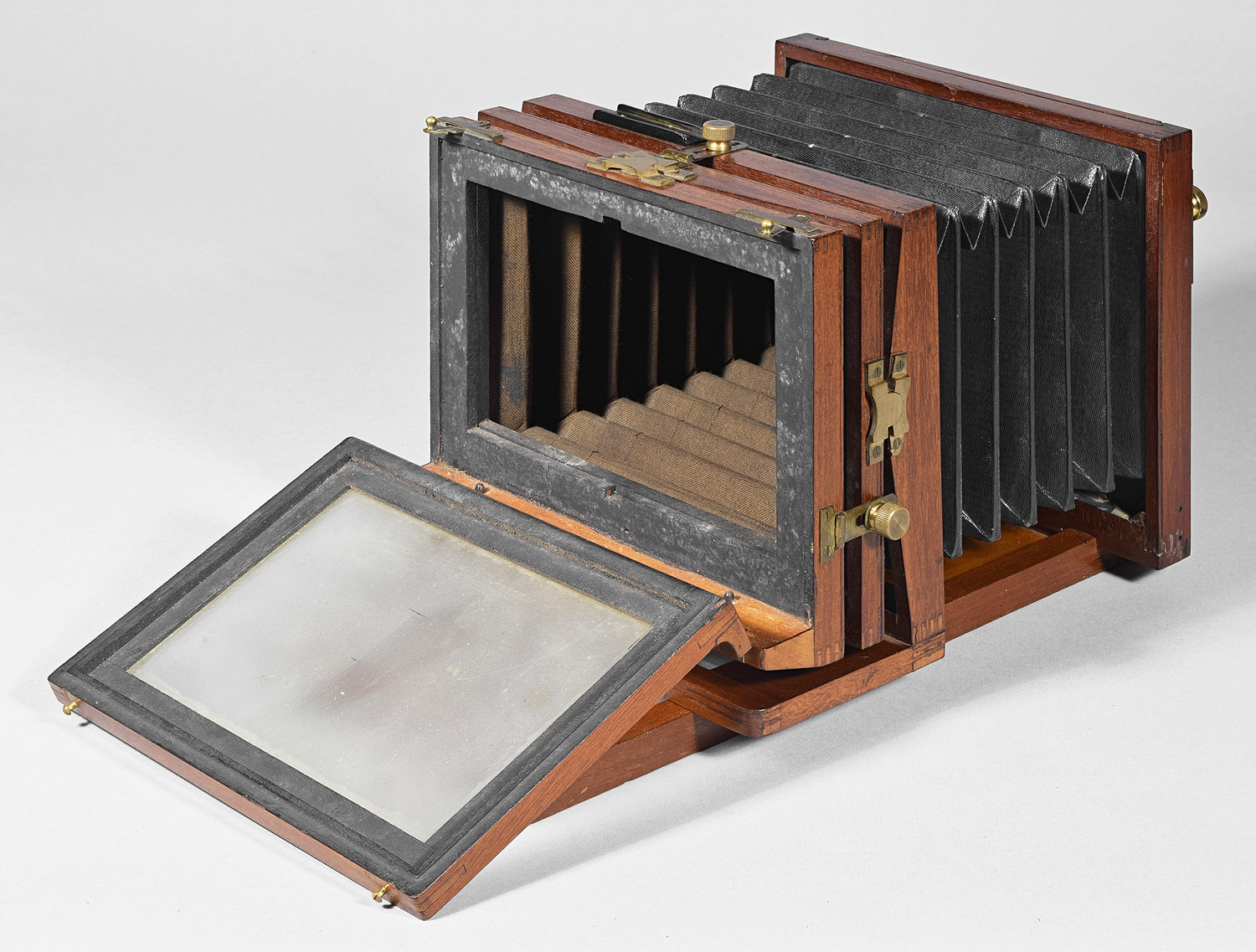
Bottom
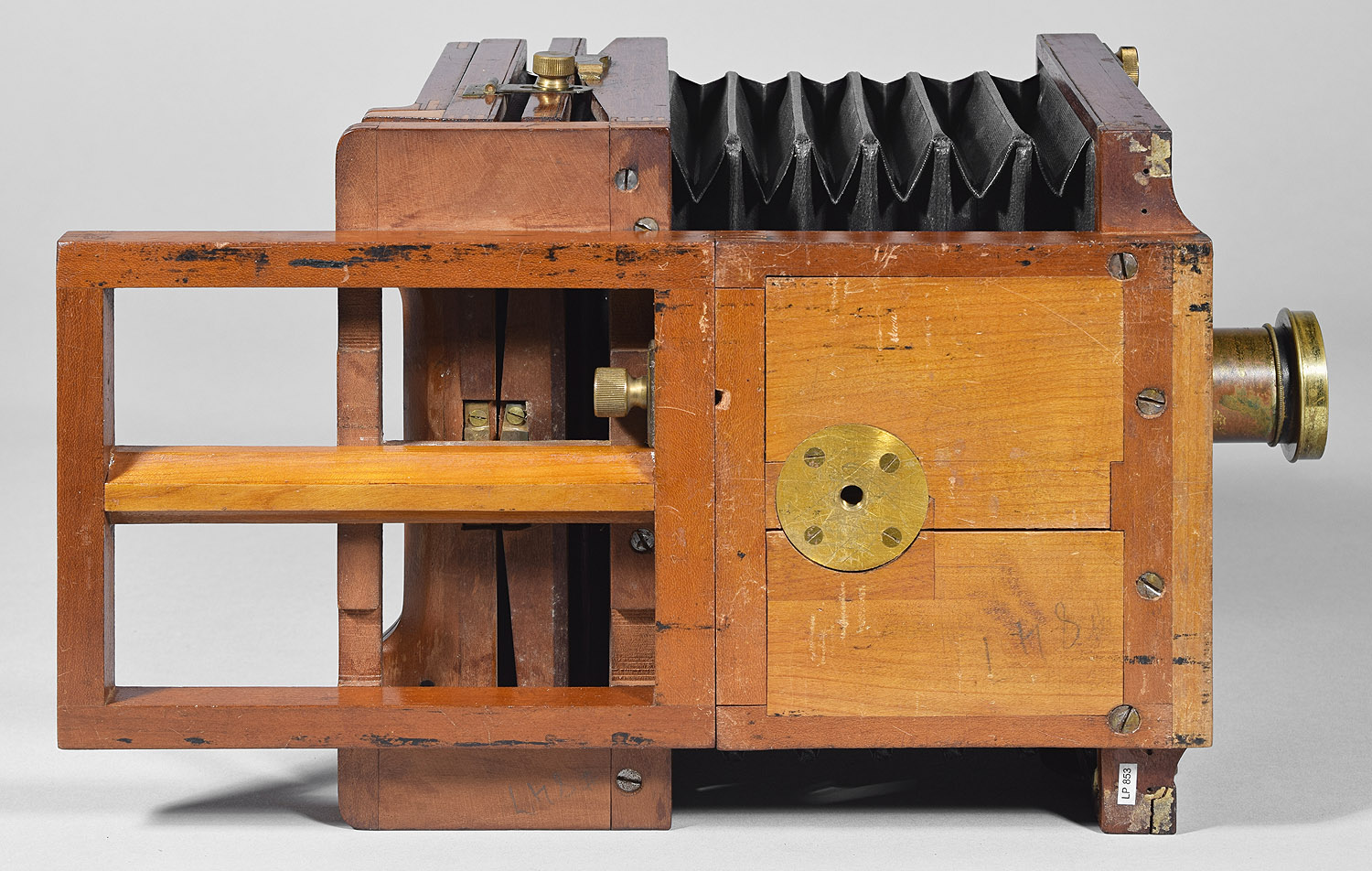
Stamp
near the top of the ground glass frame: "Amer. Optical Co., Scovill Mfg.
Co., N.Y." (not fully visible, but a common stamp for American
Optical cameras to have.

Both
the hinged section and the detachable rear extension section have two
stamps: 1) the assembly number "3", and 2) "Scovill Manufacturing Co. -
New York".
The Scovill stamp having the word Manufacturing: spelled out is
an early form. By about 1885, a one-line stamp was in use having
the abbreviation Mfg.
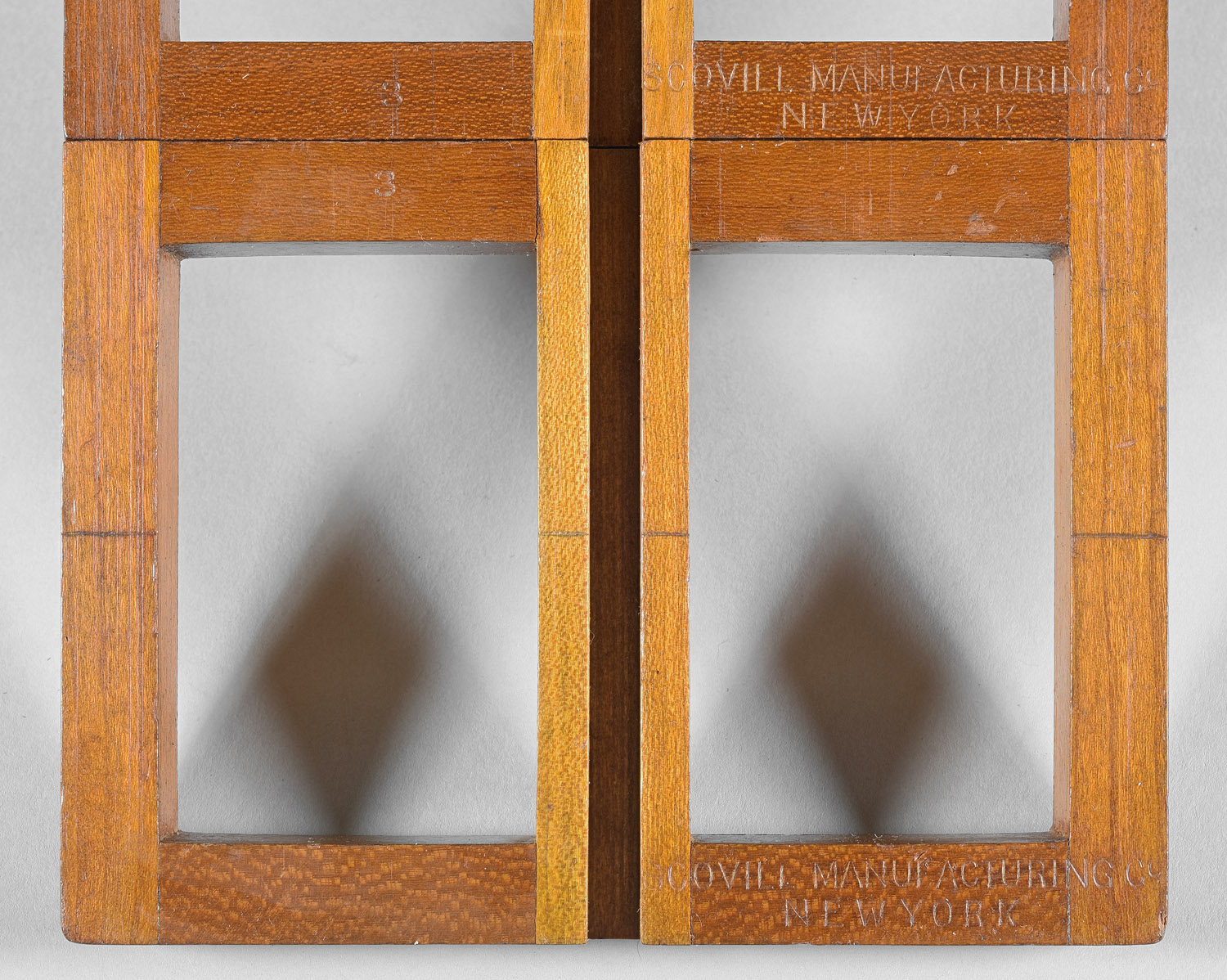
Stamp
on the rear standard platform: "3", an assembly number matching the
others on the camera.
Note that the focus is sharp from the top of the camera to the bottom
despite the closeness of the view. This cannot be achieved in the
camera, but is the result of combining, using a computer program, the
sharp areas of 12 images, each taken at a different focus. Such
programs are commonly used for photomicrographs in science.

Two paper
labels on the inside cover of the case. The first was oval, and is
the label of Crouch & Fitzgerald of
New York, a high end luggage maker
(supplying to such customers as Washington Irving, Henry Clay Frick, the
Vanderbilt family, and John F. Kennedy),from 1839 for more than 150
years.
The Crouch & Fitzgerald tag has been covered by a round tag on which can
be seen: "W. Q--n, Photographic
Materials 61 Williams St., New York, NY".
This is undoubtedly a New York office of the firm of James W. Queen &
Co. of Philadelphia, a large photographic equipment supplier.
Queen & Co. sold cameras manufactured by a variety of companies,
including Scovill Mfg. Co., Rochester Optical Co., E.&H.T. Anthony &
Co., and The Eastman Co. (see
Queen's 1891 catalog).
This camera does not appear in the few Queen & Co. catalogs that I have
seen.
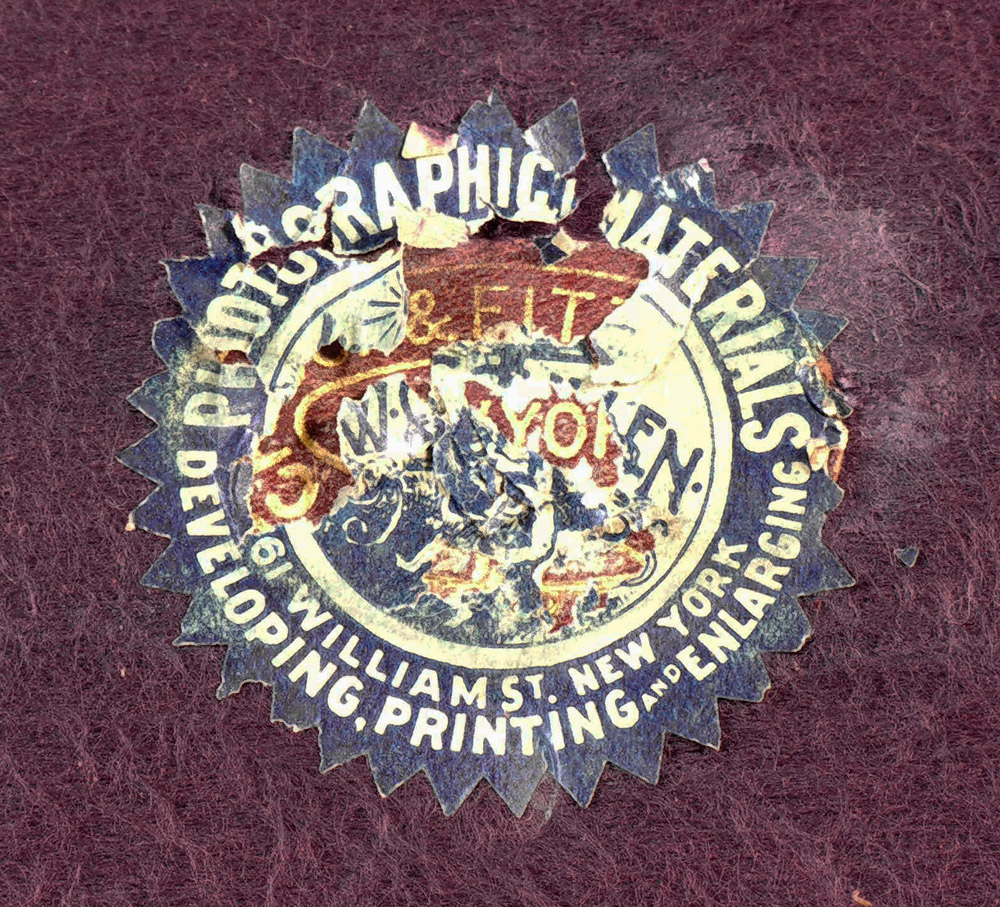
Manufacturer:
American Optical Co. New York, NY factory
Date Introduced: - ; Years Manufactured:
c.1878 - c.1887
Construction: rear
focus via rack and pinion (or apparently push-pull);
double swing; three-piece lens board
Materials: mahogany body; cherry base;
black fabric bellows; brass hardware
Sizes Offered: advertised: 4x7; 4x8; 5x8;
found: 4¼x6½
Notes:
1990's Analysi:
The 1878 Photographic Times reference indicates that the Model Stereo has "the same design and appearance is the same as The 76 Camera" (albeit without an engraving illustrating it). Unfortunately, the engraving for the Model Stereo that the 1882 McCollin's catalog hardly looks like The 76, rather being clearly an upright camera not particularly suited to stereo use. In fact, this same engraving is used in the very same catalog for the different model: American Optical View Camera Boxes. So much for truth in advertising. Because they were advertising something that may not have actually been in hand, McCollins might not have noticed that they used the wrong engraving to illustrate the Model Stereo. Per Scovill's statement, which we can assume is accurate because it appears in their own periodical, the actual Model Stereo is probably identical to or at least very similar to what is shown under 76 Camera Variation 1.
2023 Analysis:
The above paragraph was written in the 1990's, and such was the conundrum that existed for decades waiting for data on what the Model Stereo looked like. Enter the just discovered (in 2023) June 1887 Scovill catalog from David Tucker & Co. (Buffalo, NY), which actually illustrates the Model Stereo as well as describes it. The Model Stereo does, indeed, look very much like the 76 Camera, but has center-pivot double-swing instead of bottom-hinged single swing like the 76. For my money, it is much more like the Philadelphia Stereo View Camera than the 76 Camera. It is also the same price as the Philadelphia Stereo that is advertised just below it in the 1887 catalog.
Now I had the engraving, and lo and behold, I actually owned a Model Stereo that was almost exactly as described in the catalog and engraving - except that, knowing that it wasn't some other American Optical model, I had originally called it by the filename: aounknown, then finally settled on View Camera Boxes Transitional to the 76 Camera. The photos above were displayed on that page, and are now finally rightly displayed for the Model Stereo View Camera. As it always seems with these 1800's cameras, the example is not exactly like the engraving, being push-pull focus instead of rack and pinion - just like 76 Cameras, which appear to have been advertised as push-pull, but generally show up in the flesh with rack and pinion focus.
References:
Photographic Times
Vol. 8, Scovill Mfg.
Co. (New York, NY), 1878, p. 100
Illustrated Catalogue of General Photographic
Supplies, Thos. H. McCollin (Philadelphia,
PA), 1882, p. 10
Descriptive Catalogue and Price List of the Photographic Apparatus
Manufactured by the American Optical Co., Scovill Mfg. Co.,
proprietors and managers (New York, NY), Sept. 1884, p.56
Scovill Manf'g Co. Catalogue Photographic Goods, June, 1887, David
Tucker & Co. (Buffalo, NY), June, 1887, p.23
Back to American Optical Co. / Scovill Mfg. Co. (alphabetical)
